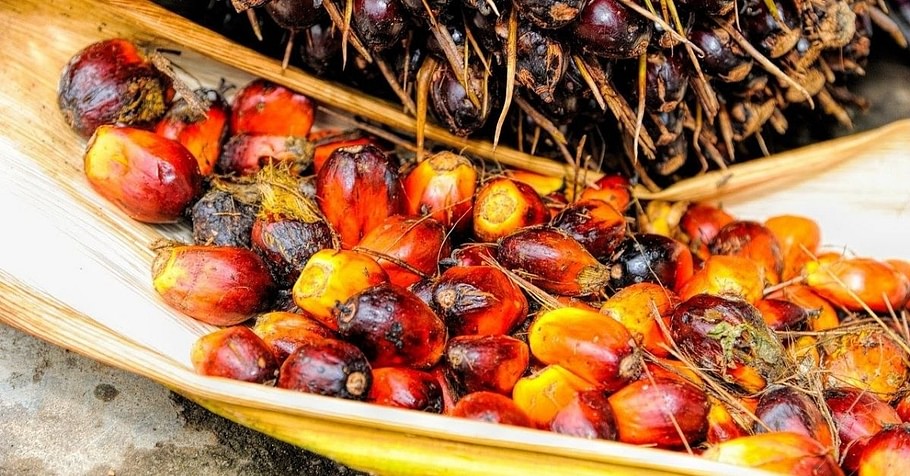Everyday Sustainability: How Being Picky on Your Grocery Run Could Help Combat Deforestation
While unsustainable palm oil cultivation is responsible for damage to the environment, when produced sustainably, it can halt deforestation, conserve biodiversity, improve the livelihood of smallholders and reduce the exploitation of indigenous communities.

This article has been published in partnership with RSPO.
Grocery shopping can entail creating a list while trying to compare brands on the basis of price, quantity, quality, etc.
But, while many of us try to get the best deal on brands, how many of us check the key ingredients?
The truth is, even the simple choice of buying chocolate is intrinsically connected to the fate of our planet, as 40 per cent of global deforestation is commodity-driven.
An earlier report by The Better India confirms that more than 50 per cent of essential products consumed daily—from your bowl of ice cream and instant noodles to your toothpaste—contain palm oil, an edible vegetable oil produced by oil palm trees.
Obtaining it, however, generally entails heavy deforestation, displacement of indigenous communities, and extensive loss of biodiversity: endangering species like orangutans, pygmy elephants, the Sumatran tiger, and Sumatran rhino, if it is not produced sustainably. Having said that, it’s also important to note that boycotting all palm oil products is likely to cause more harm than good.
There is a way out of this situation, and it is by making conscious decisions to buy products containing only certified sustainable palm oil.
While unsustainable palm oil cultivation is responsible for damage to the environment, when produced sustainably, it can halt deforestation, conserve biodiversity, improve the livelihood of smallholders and reduce the exploitation of indigenous communities.
Additionally, no other crop can manage to yield even a third as much as oil palms do per acre planted.

As one of the most popular raw materials, oil palm cultivation requires less time, and less land than any other vegetable oil source.
According to the International Union for Conservation of Nature (IUCN) report titled Oil Palm and Biodiversity, when grown sustainably, oil palms can be an efficient crop from the land use and biodiversity point of view, and help in protecting natural ecosystems – especially the equatorial forests in South East Asia.
There is an ongoing misconception that palm oil production is the lead driver of global deforestation; a report in ‘The Conversation’ explains that while agriculture is the leading cause of deforestation, oil palm plantations account for only 8% of the deforestation attributed to agricultural crops. Deforestation caused by oil palm accounts for 2.3 % of the total 239 million hectares of forests lost between 1990 and 2008, it adds.
A more nuanced discussion and research is needed to develop sustainable solutions and correct misinformation. This is an endeavour of the Roundtable on Sustainable Palm Oil (RSPO), a certification scheme responsible for setting standards for the production of sustainable palm oil.
The RSPO shows that the problem is not the crop itself, which has diverse uses and benefits, but how and where it is planted and processed. As a consumer, you can further contribute to its aims by being aware of each product’s ingredients. The RSPO Trademark can be found on products that contain sustainable palm oil, ensuring that the palm oil used is environmentally friendly.
A movement demanding sustainable palm oil is already underway, and has led a total of 117 large companies to use only 100 percent certified sustainable palm oil (CSPO) in their products. But this is just the beginning. You too can join this crusade. On your next visit to a supermarket, or while placing an order online, be sure to keep a lookout for the RSPO Trademark logo and check the ingredients in the product you are buying, and only choose those products that contain certified sustainable palm oil. Be a part of the #KnowYourPalm initiative and join the RSPO, along with The Better India, to make a real difference.
Take a pledge today to become a responsible consumer and use social media to ask your favourite ice cream, chocolates, noodles, biscuits, snacks, soap, shampoo, toothpaste and other brands if they use certified sustainable palm oil. By being just a little more informed and choosing the right product, you can contribute to global environmental sustainability and combat irresponsible deforestation.
If you found our stories insightful, informative, or even just enjoyable, we invite you to consider making a voluntary payment to support the work we do at The Better India. Your contribution helps us continue producing quality content that educates, inspires, and drives positive change.
Choose one of the payment options below for your contribution-
By paying for the stories you value, you directly contribute to sustaining our efforts focused on making a difference in the world. Together, let’s ensure that impactful stories continue to be told and shared, enriching lives and communities alike.
Thank you for your support. Here are some frequently asked questions you might find helpful to know why you are contributing?


This story made me
-
97
-
121
-
89
-
167













